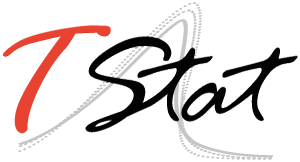Discrete Choice Analysis Tools 2.0 provides an adaptable, efficient, and user-friendly environment for linear data classification. It’s designed with a full suite of tools built to accommodate individual model specificity, including adjustable parameter bounds, linear or nonlinear constraints, and default or user specified starting values. Newly incorporated data and parameter input procedures make model set-up and implementation intuitive.
BINARY AND COUNT MODELS
- Binary probit.
- Binary logit.
- Negative binomial regression.
- Poisson regression.
MULTINOMIAL LOGIT MODELS
- Conditional logit.
- Nested logit.
- Ordered logit.
- Adjacent category logit.
- Stereotype logit.
LOGISTIC REGRESSION MODELLING
- L2/L1 regularized classifiers.
- L2/L1-loss linear SVM.
ACCESSIBLE, STORABLE, AND EXPORTABLE OUTPUT
- Parameter estimates.
- Variance-covariance matrix for coefficient estimates and marginal effects.
- Categorical dependent variables percentages.
© 2025 Aptech Systems, Inc. All rights reserved.
- Data descriptions of all independent variables.
- Marginal effects of independent variables.
- Predicted counts and residuals.
MODEL SELECTION AND ASSESSMENT
- Full model and restricted model log-likelihoods.
- Chi-square statistic.
- Agresti’s G-squared statistic.
- McFadden’s Pseudo R-squared.
- Madalla’s Pseudo R-squared.
- Akaike information criterion (AIC).
- Bayesian information criterion (BIC).
- Likelihood ratio statistics and accompanying probability values.
- McKelvey and Zovcina’s psuedo R-Squared.
- Cragg and Uhler’s normed likelihood ratios.
- Count R-Squared.
- Adjusted count R-Squared.
EXAMPLES:
- Adjacent Categories Logit Model.
- Binary Logit Model.
- Conditional Logit Model.
- Logistic Regression Model.
- Nested Logit Model.
- Ordered Logit Model.
- Stereotypical Multinomial Logit Model.
- Platform: Windows, Mac, and Linux.
- Requirements: GAUSS/GAUSS Engine/GAUSS Light v14 or higher.

